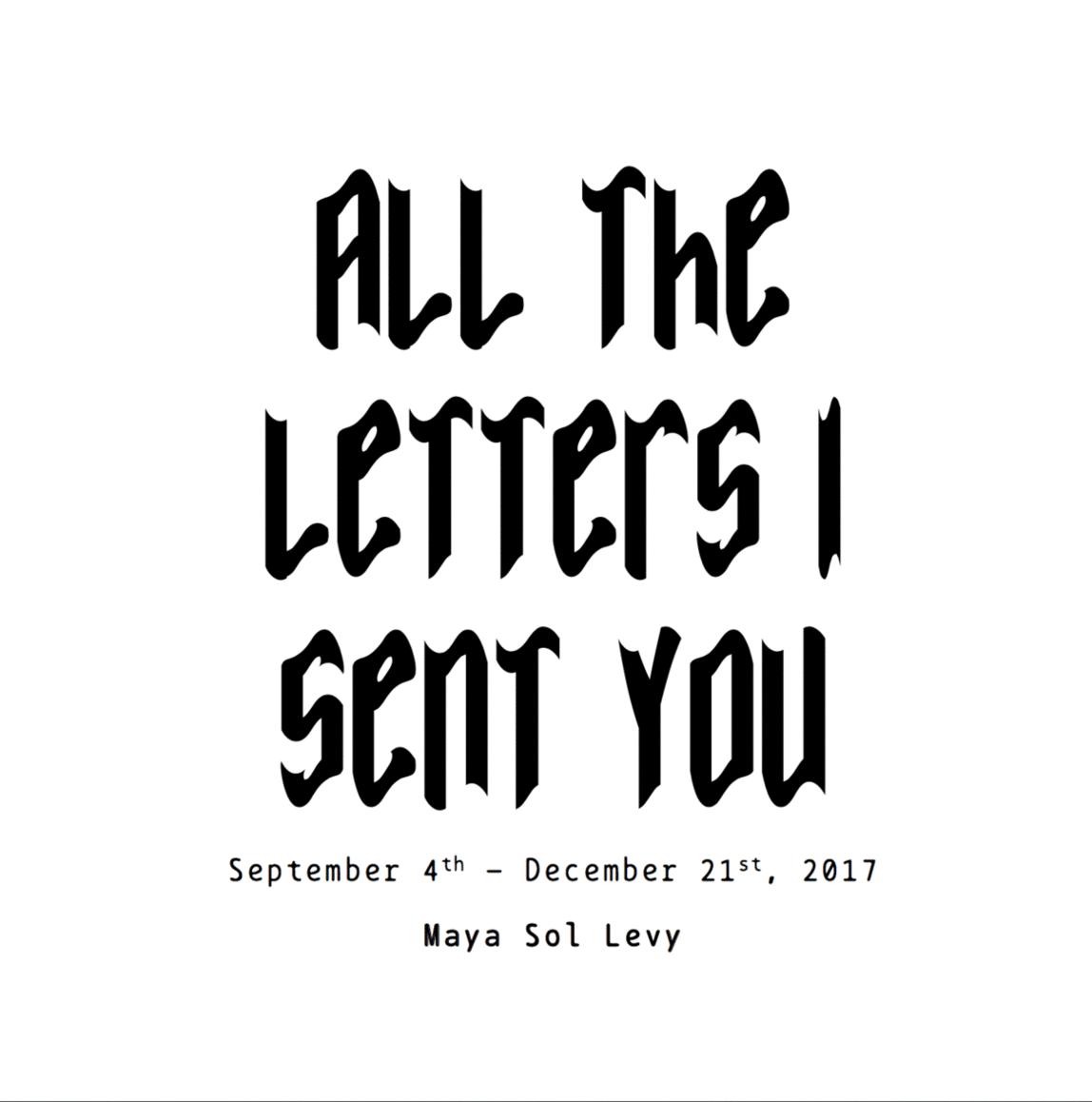
All the Letters I Sent You (2019)︎107 pages︎
︎Final project - UCLA course, Writing for the Internet︎
All the Letters I Sent You relocates an alphabetized list of 17,500 words sent by one half of a long-distance romantic partnership onto 100 distinct postcards.
The document transposes the digital immateriality of the text-message archive into physical form. It considers two separate yet interrelated meanings of “letters”: the representational symbols that make up the alphabet as well as the written or printed communications addressed to a specific recipient.
Long-distance text-messaging – especially between those in romantic relationships – is an exchange of “letters” in its own right. Every heart emoji, exclamation point and question mark holds weight. Every word-choice bears the burden of conveying feelings – complex and confusing as they may be – without the convenience of social cues afforded by physical proximity. Time spent drafting, interpreting and fawning over texts to and from romantic partners thus proves an act of emotional labor. More often than not, a long-distance partner exists solely within the frame of a phone or computer screen. When such a relationship ends, therefore, the text-message archive remains a painful or poignant reminder of what once was. Time-stamps and read-receipts only contribute to feelings of eeriness and ultra-specificity.
︎Final project - UCLA course, Writing for the Internet︎
All the Letters I Sent You relocates an alphabetized list of 17,500 words sent by one half of a long-distance romantic partnership onto 100 distinct postcards.
The document transposes the digital immateriality of the text-message archive into physical form. It considers two separate yet interrelated meanings of “letters”: the representational symbols that make up the alphabet as well as the written or printed communications addressed to a specific recipient.
Long-distance text-messaging – especially between those in romantic relationships – is an exchange of “letters” in its own right. Every heart emoji, exclamation point and question mark holds weight. Every word-choice bears the burden of conveying feelings – complex and confusing as they may be – without the convenience of social cues afforded by physical proximity. Time spent drafting, interpreting and fawning over texts to and from romantic partners thus proves an act of emotional labor. More often than not, a long-distance partner exists solely within the frame of a phone or computer screen. When such a relationship ends, therefore, the text-message archive remains a painful or poignant reminder of what once was. Time-stamps and read-receipts only contribute to feelings of eeriness and ultra-specificity.
There inherently exists an emotive, erotic charge to that which is sensory. A love-text on a phone screen, like a love-letter that one can physically hold, carries emotional resonance. By converting this specific digital text archive into a tangible book form, its affective quality becomes amplified. The words materialize and hold both literal and symbolic weight, representing the emotional labor and care invested in a relationship that ultimately fell apart – one now marked by pain, confusion and betrayal.
The alphabetized catalog conveys physical and numerical immensity, making concrete a bond that existed primarily through digital channels. The list’s lack of grammatical coherence not only reflects the inherent confusion of long-distance relationships but obscures the intended meanings of the original text-messages. Such obstruction, however, provides new, accidental associations, connotations and repetitions. Additionally, the alphabetizing list generator made several errors; they remain in the piece as evocative interruptions that add interest to an otherwise predictable – yet particular – list.
Ultimately, the cathartic process of cataloging these “letters” turns the often anxiety-inducing, emotionally draining practice of texting into something methodical and direct.
︎︎︎Read the full text here
The alphabetized catalog conveys physical and numerical immensity, making concrete a bond that existed primarily through digital channels. The list’s lack of grammatical coherence not only reflects the inherent confusion of long-distance relationships but obscures the intended meanings of the original text-messages. Such obstruction, however, provides new, accidental associations, connotations and repetitions. Additionally, the alphabetizing list generator made several errors; they remain in the piece as evocative interruptions that add interest to an otherwise predictable – yet particular – list.
Ultimately, the cathartic process of cataloging these “letters” turns the often anxiety-inducing, emotionally draining practice of texting into something methodical and direct.
︎︎︎Read the full text here

